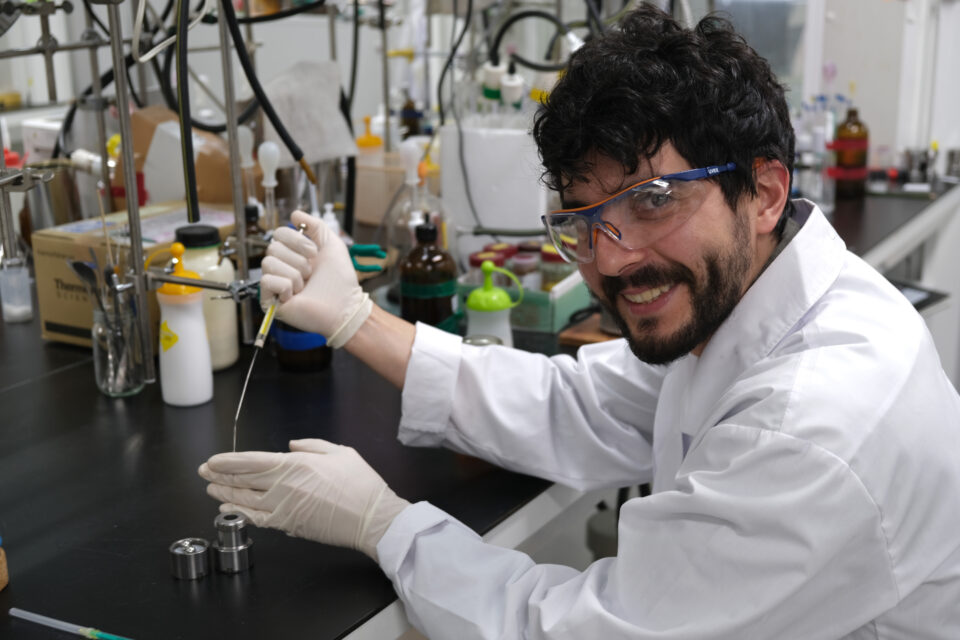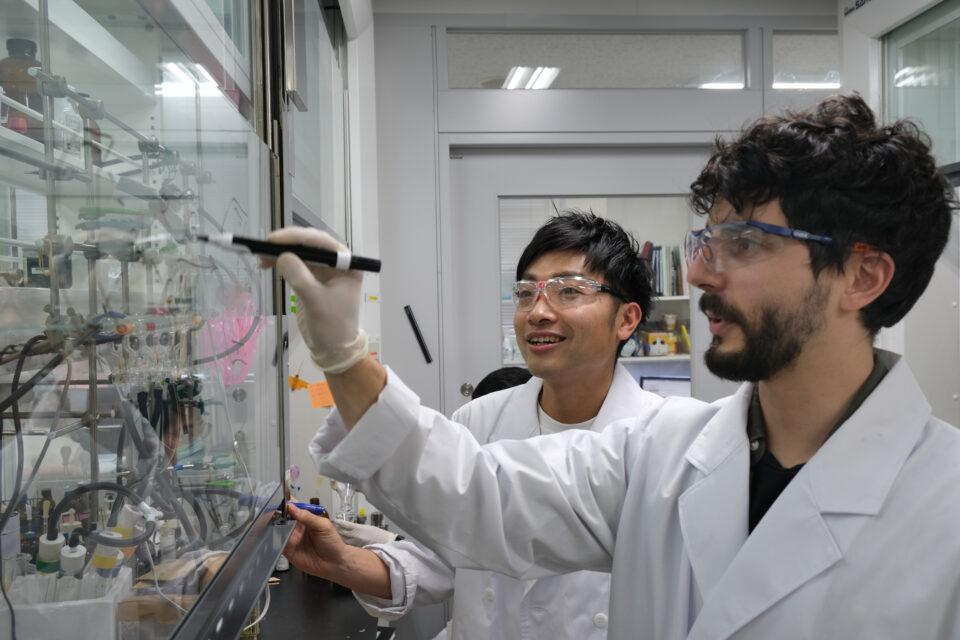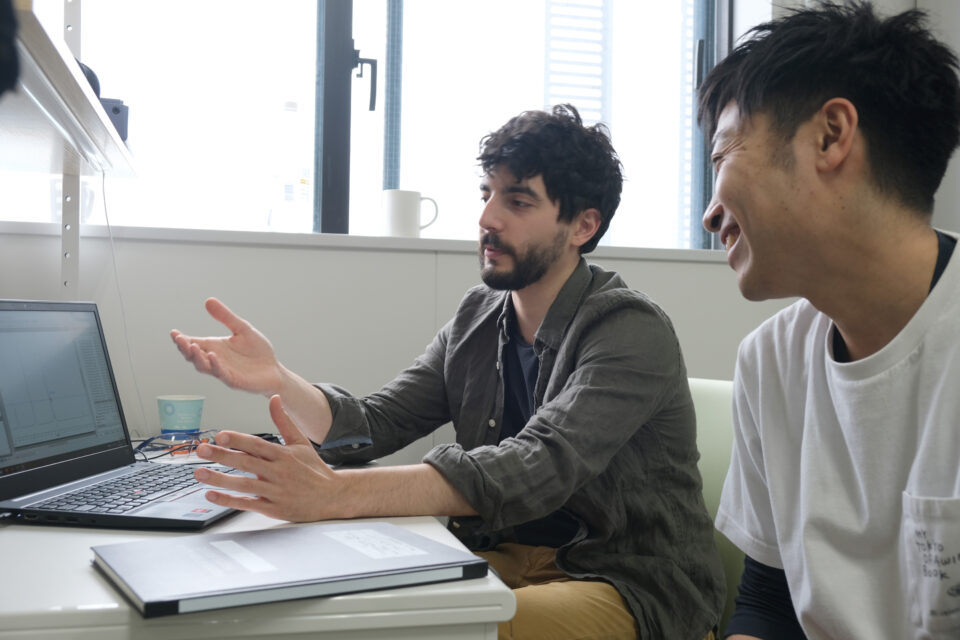Considering the MANABIYA program? Read below to find out first-hand from MANABIYA participant Francesco Puccetti about his experience. Francesco is a PhD student from RWTH Aachen University in Germany and is working on a mechanochemical research project in Professor Ito’s group during his three-month stay in the MANABIYA program.

Q: After hearing about MANABIYA, what made you want to apply?
A: Once I heard about the program, what made me want to apply is that the program includes research groups that have different interests in science. The science that I do, mechanochemistry, is still fairly new. We often find ourselves on the border between different kinds of expertise. In my case, for synthetic chemistry, and in the case of the group of Professor Ito and Professor Kubota, for solid-state synthesis, it is very important to have solid-state analysis of these compounds, or DFT calculations utilizing computational chemistry. These are all chemistry fields that are contributing then to explaining and analyzing the reactions that we do in mechanochemistry. So I think mostly I wanted to join the MANABIYA program for the connections that it allows.
Q: Did you have an interest in coming to Japan aside from research?
A: Yes, I believe that experiencing different research environments, aside from the science that you can do in these places, is fundamental for personal growth and for the ability to be flexible in all different research scenarios, and also to start having a web of connections as well. The MANABIYA program provided an entrance into the world of research in Japan and allowed me to get connected with other research groups that are in the MANABIYA program.
Q: How was the administrative support for coming to Japan?
A: I had the chance to go abroad for work on other occasions, and I have to say that the support that I got from the administrative staff of ICReDD was absolutely excellent, especially considering it had to face the problems of the pandemic situation and the governmental rules that didn’t allow researchers and students to come into Japan. We had to actually postpone my time here by 6-8 months, and in all of this process, I noticed whenever the situation changed, I immediately got an e-mail from Mrs. Tamura (ICReDD staff) with all the news, either bad or good. She was always very nice and very understanding of the situation. I was constantly supported at the time of the visa application and the documents that I needed to sign, whether they were in English or in Japanese, were always accompanied by another document that indicated what I have to write and where I have to write it and that definitely made the paperwork go smoothly. When organizing the accommodation as well, they were constantly in contact with the landlord, and this was absolutely helpful.

Q: How has your experience been here at ICReDD and in the MANABIYA program so far?
A: It’s really good. It’s a different research scenario than what I’m used to. We speak the same science, but we have a completely different approach. Going so far from what is the reality of research in Europe, and coming to Japan, also with the cultural shock that there is at the beginning, it has been very helpful having a staff that is so helpful in including me in the daily life of the lab. And also, they help me communicate my research to other groups in the lab. All of the group has been supportive in connecting me to the common research facilities in the building, for analysis, for reactions, and other special purposes. One person actually assumed the role of guiding me through all the steps for the first weeks. And this was a very helpful approach, because slowly this person stepped a bit back, and now I have all the space and time to do my research autonomously.
Q: How has it been living in Sapporo and adjusting to a new location and new culture?
A: Maybe I am kind of lucky because I am a very curious person. I have had other working experience abroad and so I just like to jump in. The more different the place is from what I already know, the more I am intrigued to be there. Life in Sapporo is definitely completely different than in Europe, food-wise and culture-wise, but the impact has been very positive. Although there is the language barrier very often, I noticed there is a very big willingness of the locals to help you in any way they can.
Q: Have you been able to adjust to the new situation quickly?
A: I have made a large use of technology and pictures, and I have managed to integrate. It’s also helpful to have this kind of similarity between the work here and the work at home. Also in Germany I wake up and go to the lab, then I go out for lunch, then I come back home, and then I have the rest of my day. I have the same kind of lifestyle here. There are some common threads that then help when making little adjustments one at a time.
Q: Have you tried some of the local food?
A: I am bothering my colleagues every day to bring me to try more and more stuff. I love food, so I really enjoy that. Yes, I tried some sashimi at the Nijo fish market, and I have the promise of my colleagues to try Genghis Khan (lamb barbecue) that is famous here.


